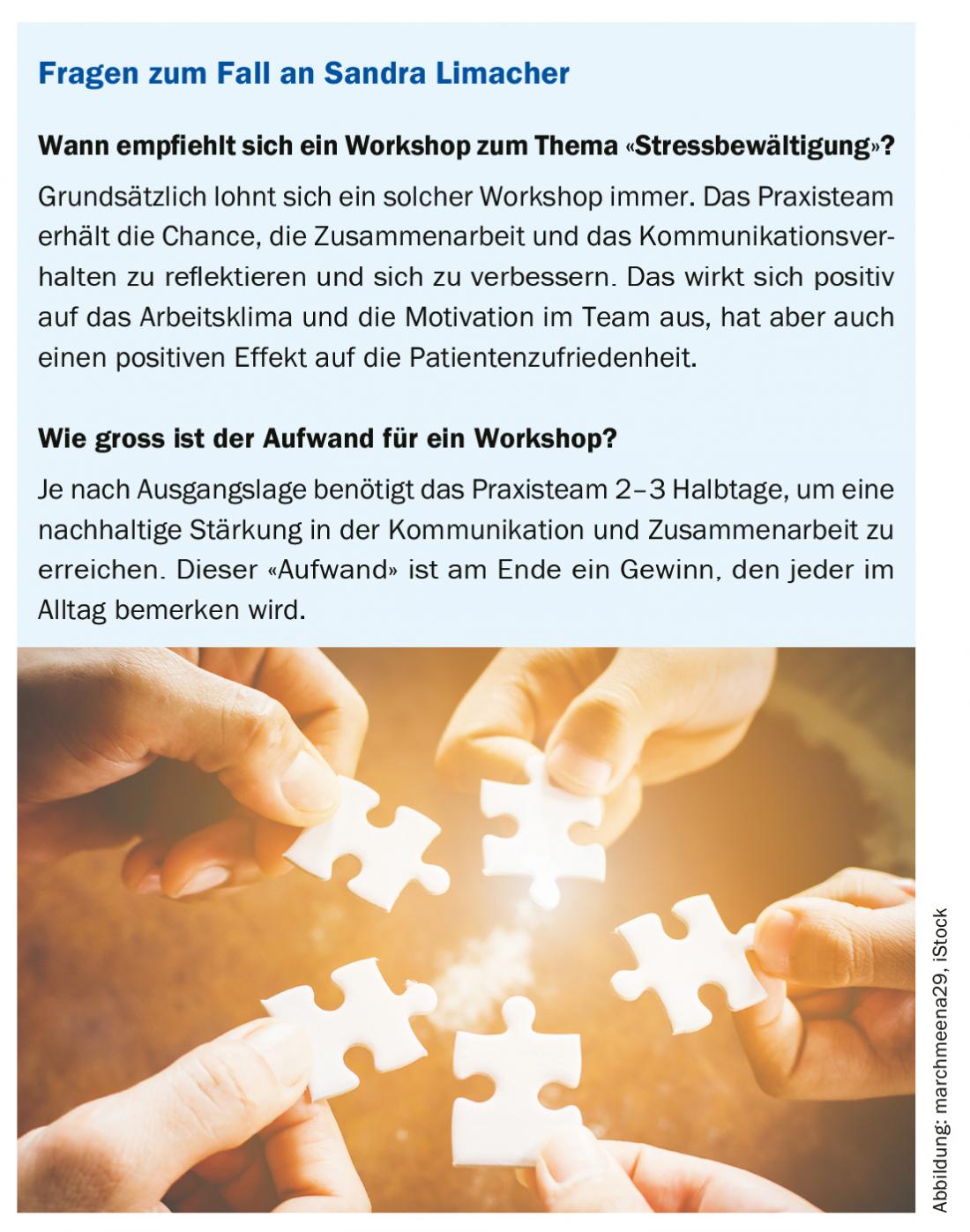Things can quickly become stressful in the day-to-day running of a practice. Communication, cohesion and an awareness of the situation at hand can help in hectic times.
Who does not know this? No sooner do you get to the office in the morning than everything turns out differently than you thought, and priorities have to be reordered. This situation can quickly become too much for the doctor and the practice team. After all, there are only 24 hours in a day. Thus, the question arises whether there is a prescription to better deal with the stress of everyday practice. How can teamwork be improved to function optimally even in hectic times?
Key factor communication
A hectic practice demands the whole team and directs the focus from a coaching perspective to two questions:
- Cooperation within the practice team: Are responsibilities, competencies and processes clearly defined? Can each team member use his or her strengths or could some things be better regulated?
- Communication in the practice team: How do we communicate with each other? How do we communicate in stressful situations? What is going well then and where do improvements need to be made? What solutions and ideas does the team have for this?
In order to improve the interaction, on the one hand the positive aspects have to be worked out and thus the strengths have to be emphasized. On the other hand, problem areas and stumbling blocks must be named so that suggestions for improvement can be worked out together.
Using a scale of 1-10 (1=bad, 10=very good), the situation regarding cooperation and communication can be evaluated by each team member in a short time. Considerations from different perspectives become possible, which in turn can inspire new approaches in the team.
Look at situations that work well
Initially, the focus is on situations that are going particularly well. The points mentioned are recorded on moderation cards and collected on a pin board:
- What is the situation when everything is going well?
- What specifically does it take to increase ratings in small increments on the scale?
The findings regarding cooperation and communication are collected and discussed. Where are the team members of the same opinion, where are there discrepancies? What are the explanations for divergent views? What other approaches are suitable for improvement? What would go differently if everything went perfectly? What is the role of each team member and practice management? In a next step, strategies and concrete measures can be derived in the team.
The exchange within the practice team is particularly valuable in such workshops. Appreciation of the work of each individual is also very important. There is often too little time for this in everyday practice. The assignment of competencies and responsibilities in the team is usually a pleasant work in the workshop, because enough space can be given to the task. This strengthening and allocation is the basis for working hand in hand in stressful situations and being able to rely on each other.
View of stressful, difficult situations
Focusing on stressful, difficult situations is also worthwhile:
- How do stressful, difficult situations manifest themselves?
- How do these situations arise?
- How can we deal with it better?
- What three to five specific rules do we hold to better manage these situations in the future?
Create awareness
By examining situations that work well and those that are difficult, the practice team gains an awareness of challenging situations, their causes, and their impact on team collaboration in everyday practice. Thanks to the visualization with the help of the scale and the moderation cards as well as the view from different perspectives, the team gets an overall view of various situations and can derive necessary conclusions for the improvement of cooperation and communication in stressful situations. In addition, each team member recognizes that every everyday situation is a learning field for personal development and teamwork. In the end, it comes down to the overall performance of the team. This also increases the motivation for each individual.
Transfer to everyday practice
It is particularly helpful for a team to gain clarity about the causes of stressful and difficult situations. One team that I had the privilege of mentoring in this process now regularly exchanges ideas about difficult situations in meetings in order to develop further and to create an awareness for adequate interaction within the team as well as with patients. This improves communication and the flow of information. The patient’s perspective with his expectations and needs is more sharpened; this facilitates both patient management and teamwork.
HAUSARZT PRAXIS 2019; 14(7): 6-7












